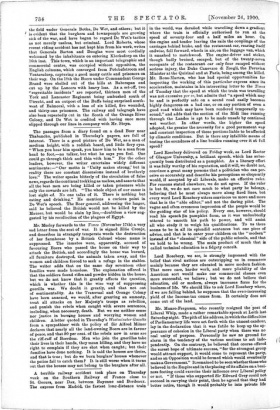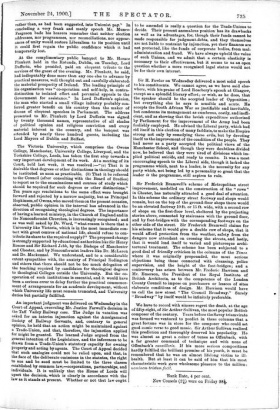Mr. Munro-Ferguson, who recently resigned the post of Liberal Whip,
made a rather remarkable speech at Leith last Saturday night. The pith of his address, in which the difficulties of Parliamentary life were set forth with the utmost candour, lay in the declaration that it was futile to keep up the ap- pearance of cohesion in the Liberal party when there was no real unity of purpose. Personally he saw no ground for alarm in the tendency of the various sections to act inde- pendently. On the contrary, he believed that course offered the surest hope of ultimate success, "for the strongest group would attract support, it would come to represent the party, and so an Opposition would be formed which would eventually make a Government." Itremained to be seen whether those who believed in the Empire and in the placing of its affairs on a busi- ness footing could exercise their influence over Liberal policy or not. "If those who supported Sir Edward Grey could not. succeed in carrying their point, then he agreed that they had better retire, though it would probably be into private life
rather than, as had been suggested, into Unionist pay." In concluding a very frank and manly speech Mr. Munro- Ferguson bade his hearers remember that neither election addresses, nor programmes, nor reconciliations, nor appear- ances of unity would restore Liberalism to its position until it could first regain the public confidence which it had temporarily lost.











































 Previous page
Previous page